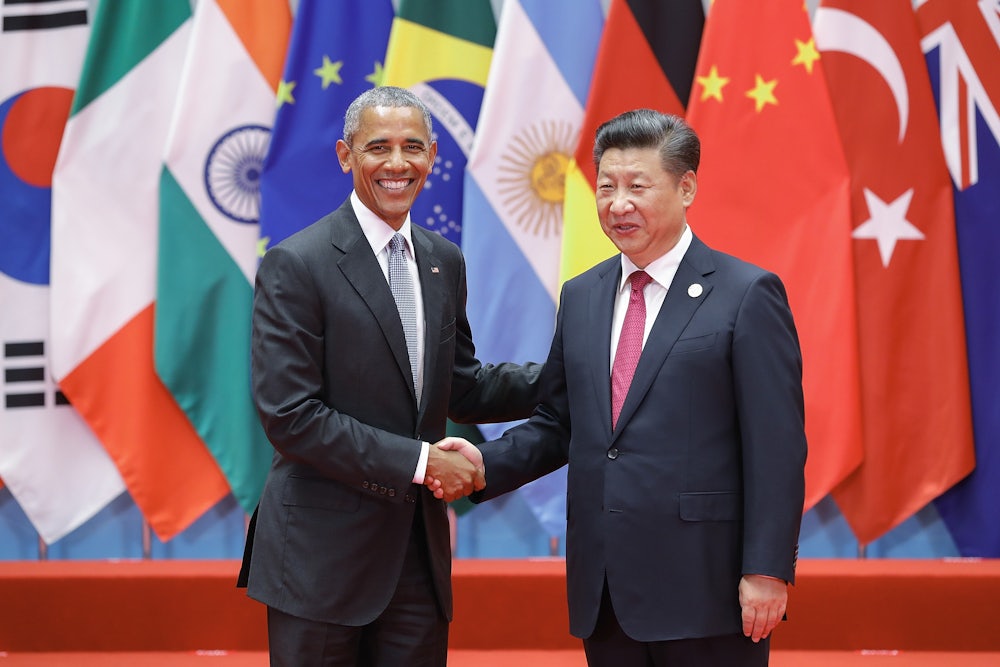Global carbon dioxide levels didn’t increase for the third consecutive year, according to an international study released on Monday. “So far the slowdown has been driven by China,” co-author Glen Peters, of Oslo’s Center for International Climate and Environmental Research, told Reuters.
The news outlet notes that “Beijing’s climate change policies would also be the dominant force in future since it accounts for almost 30 percent of global emissions.” Which makes it all the more concerning that President–elect Donald Trump once tweeted the following:
The concept of global warming was created by and for the Chinese in order to make U.S. manufacturing non-competitive.
— Donald J. Trump (@realDonaldTrump) November 6, 2012
Not even one week after the election, and as the United Nation’s COP22 climate conference continues in Morocco, Trump has already begun to look into canceling U.S. obligations to the Paris Agreement. Doing so would require an executive order to void the United Nations Framework Convention on Climate Change, a treaty ratified by the Senate under George H. W. Bush. Alternatively, Trump could avoid the legal headache and simply fail to uphold the commitments made by the U.S.
One of the goals of the Paris Agreement is for global emissions to peak as soon as possible. The agreement notes, however, that this is more of a challenge for developing countries, putting the responsibility to cut emissions on industrialized countries. The agreement, though ratified by 195 countries, relies in large part on participation from the U.S., the world’s second-largest contributor of carbon emissions.
Though it seems unlikely that China will pull out of the agreement—they rightly believe that it’s in their best interest to reduce emissions—a U.S. withdrawal could give other critical parties, notably India, an excuse not to participate. More likely, U.S. allies will put pressure on Trump to honor the terms of the Paris Agreement. French presidential candidate Nicolas Sarkozy on Sunday proposed that “if the United States doesn’t apply environmental rules that we are imposing on our companies,” then Europe should put a carbon tax of 1-3 percent “for all products coming from the United States.”
